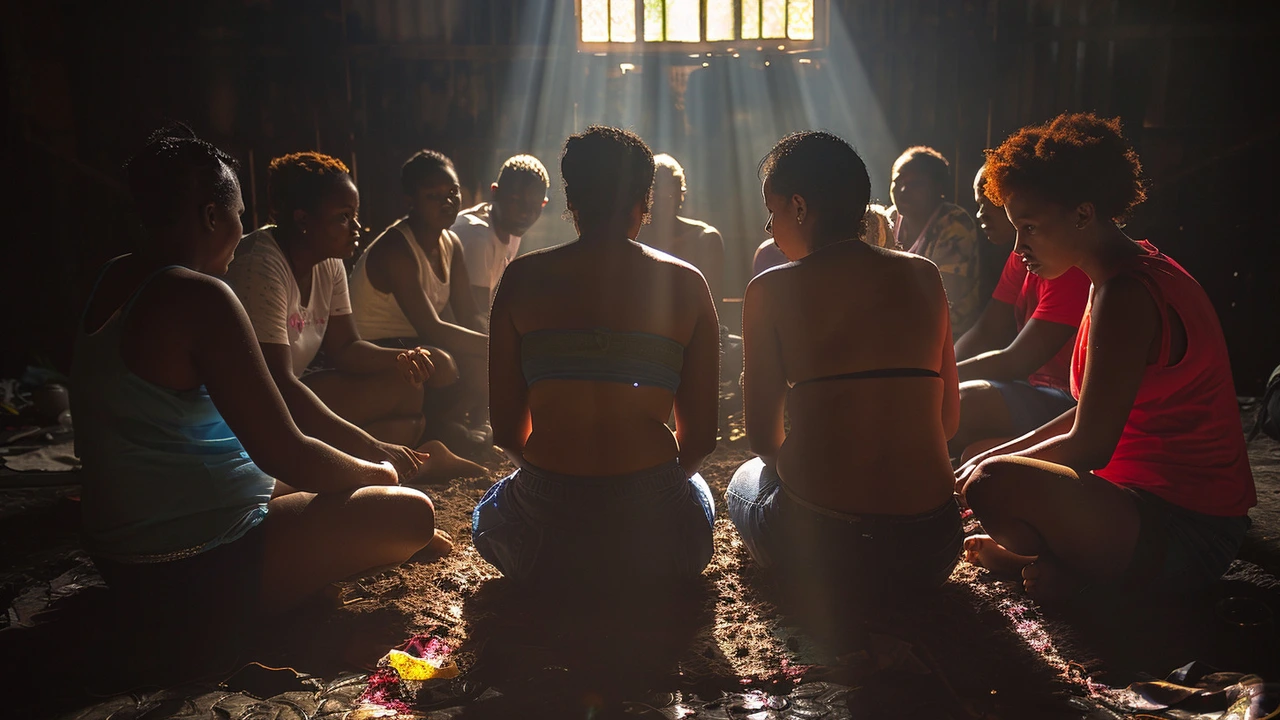- Chelsea Women's Triumph Over Liverpool Sees Stellar Performances from Ramirez and Reiten Nov 11, 2024
- Cavaliers Face Key Injury Questions Ahead of Pivotal Game 5 Against Pacers May 14, 2025
- Nicole Kidman and Keith Urban Announce Separation After 19 Years Oct 1, 2025
- Gayton McKenzie's Fallout Threatens South Africa's Fragile GNU Sep 27, 2025
- How to Watch QPR vs Tottenham Live: TV Channel, Stream, and Pre-Season Highlights Jul 21, 2024
Trafficking Nigerian teenagers: how to spot it and what to do
Traffickers use simple lies: a good job, study abroad, or quick money. Nigerian teenagers are often the target because they’re eager for opportunity and easy to influence. This page gives clear, practical steps for parents, teachers and friends to spot danger, act fast, and prevent harm.
How traffickers work — common tricks
They promise legal jobs or school placements, then force work, sex, or criminal activity. Recruitment can happen in the community, through church or school contacts, and increasingly online. Fake agencies, well-dressed recruiters, or a friend who suddenly seems richer are common signs of grooming. Some traffickers also use early or forced marriage as a cover.
Traffickers like to build trust first. They may pay for travel or give gifts, ask for secrecy, or pressure the teen to repay a fake debt. When families are told the teen left willingly, it can delay help. Knowing these tactics helps you spot unsafe offers fast.
Signs a teenager may be trafficked
Watch for sudden changes: unexplained trips, new expensive items, or a teen who becomes secretive about friends and phone activity. Physical signs include poor health, signs of abuse, or being driven to work at odd hours. Behavior clues are anxiety, depression, sudden drop in school attendance, or fear of adults asking questions.
If a young person mentions a recruiter, a job that pays cash but asks them to travel first, or pressure to take loans or sell belongings, treat that as serious. Don’t wait for proof — quick action can save a life.
Schools and community groups should keep records of suspicious recruiters and share information with local child protection teams. Teach teens to question offers that sound too good to be true and to check documents with trusted adults.
What to do right now — quick steps
If you suspect trafficking: stay calm, keep the teen safe, and contact authorities. In Nigeria, report to NAPTIP (National Agency for the Prohibition of Trafficking in Persons) and your nearest police station. If you cannot reach them immediately, contact reputable NGOs, community leaders, or health services. Preserve any messages, photos, tickets or contact details from recruiters — these help investigators.
Don’t confront suspected traffickers alone. Share information with officials and trusted community members. If a teen is abroad, contact Nigeria’s Ministry of Foreign Affairs or the nearest embassy for support.
Prevention matters: teach online safety, check job or study offers, insist on written contracts, verify recruiters with NAPTIP, and keep travel plans open to family. Schools should include clear sessions on trafficking signs and safe migration in their curriculum.
You don’t need to be an expert to help. Noticing one worrying sign and acting on it can stop a trafficking route. If you’re unsure, reach out to local child protection services or NAPTIP for advice — asking for help is the right first move.
Nigerian Man Arrested for Allegedly Trafficking Teenage Girls to Ghana for Prostitution – High Commissioner
- Katlego Sean Mahaye
- Jun 11, 2024
A Nigerian man, Chukwudi Nwachukwu, was apprehended for allegedly trafficking 11 teenage girls to Ghana under the pretense of offering them jobs, only to force them into prostitution. The acting Nigerian High Commissioner in Ghana confirmed the girls are safe, receiving care, and promised their reunification with families after the investigation completes.
